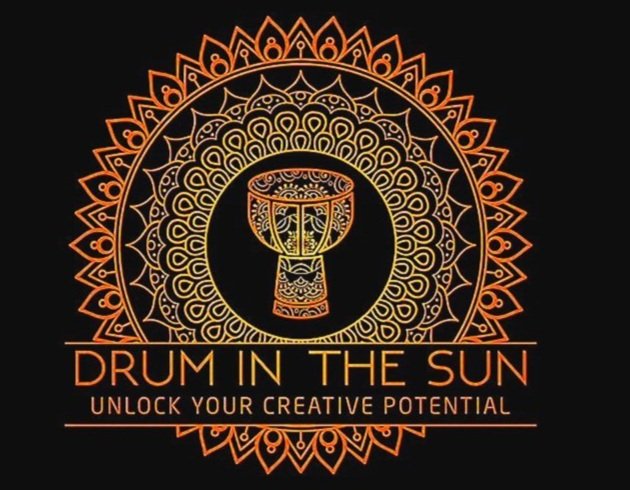Join our eight-week group class
BOOK NOW
Every Tuesday, 6 PM - 7 PM | Aug 19th - Oct 7th 2025
The Swing of the Soul
This course is a deep dive into one of West Africa’s most powerful rhythmic traditions—Donba & Maraka, depending on where the current group is in the journey. Each rhythm belongs to a larger family of 6/8 music, and each offers a unique pathway toward presence, creativity, and healing.
We don’t rush through these. We focus on one rhythm at a time, giving it space to open up, to breathe, and to be felt in the body before moving on. These rhythms are not just musical exercises—they're entire ecosystems of groove and feeling. You’ll return to them again and again as your skills deepen.
If you're curious which rhythm we’ll be exploring this session, just reach out. The answer depends on the group and where we are in the ongoing cycle of study.
Why Donba and Maraka Matter
Donba (also known as Soli Rapide) is fast, tight, and propulsive. It's rooted in initiation traditions—meant to push you toward clarity, strength, and rhythmic focus. It builds stamina and concentration, teaching how to express energy with control and precision.
Maraka (sometimes called Sigandi) is spacious, subtle, and swinging. It invites surrender to groove, asking you to stretch your internal sense of time. With roots in the Wassoulou region, Maraka opens the door to trance and teaches you how to feel multiple pulses at once—especially the interplay between 6/8 and 4/4.
While very different in feel, both rhythms share something vital: they train your listening, your flow, and your ability to stay inside the rhythm as it moves around you.
What to Expect
Learn the full djembe and dunun arrangements for either Donba or Maraka
Develop a deep understanding of 6/8 phrasing and swing
Practice longer solo phrases and internalize rhythmic cycles
Explore rhythm as a tool for grounding, release, and collective joy
Strengthen coordination, creativity, and confidence in ensemble settings
Each class is part technique, part meditation, and part play. We work hard, but we also laugh a lot and leave feeling more alive.
Rhythm as Ongoing Practice
Think of this course as a doorway—not a destination. Whether we focus on Donba or Maraka, you are beginning a longer journey into the heart of 6/8 rhythm. These aren’t rhythms you “master” in a few weeks. Instead, they reveal themselves over time, and this course sets the stage for a deeper, richer relationship with them down the road.
Both Donba and Maraka represent vast musical lineages. You will return to them in future courses, perhaps with more complexity or in new ensemble roles. But it all starts here—with feel, with curiosity, and with a beat that won’t let go.
Cultural and Historical Roots
Donba / Soli Rapide
Donba originates from the Wasulu region of southern Mali and is related to the larger family of Soli rhythms—used traditionally in male initiation ceremonies across Mandé cultures. Known as Soli Rapide when played at faster tempos, Donba was often used to mark transition points: the move from childhood to adulthood, from the known into the unknown.
Its tight, staccato phrasing reflects that purpose—pushing players toward greater focus, coordination, and mental clarity. It’s an urgent rhythm, full of discipline and power, often played in communal contexts that demand presence and intention.
Maraka / Sigandi
Maraka, sometimes referred to as Sigandi, comes from the Maraka people of Mali—descendants of Mandé traders and Islamic scholars who played a key cultural role in central Mali. The rhythm has a more spiritual and celebratory feel, often associated with festivals, social dances, and trance-based ceremonies.
Maraka is heavily influenced by the Wassoulou region, known for its swinging, flowing musical style and its powerful women singers. The rhythm is typically structured in 8-beat phrases and is unique in that it can be felt simultaneously in 6/8 and 4/4, giving it a hypnotic, almost floating quality. Maraka teaches the art of letting go within structure, of surrendering to the groove without losing one’s center.
Both Donba and Maraka are not just rhythms—they are cultural vessels, carrying history, ceremony, and the wisdom of generations. To play them is to step into a conversation that’s been unfolding for centuries, guided by the heartbeat of the drum.
Who This Is For
Students who’ve completed Levels 1 and 2
Experienced beginners ready for longer phrasing and deeper groove
Anyone seeking rhythm as a form of wellness, movement, and meaning
You don’t need to be a musician. You just need a heartbeat, a willingness to listen, and the patience to let rhythm change you from the inside out.
Have a question about which rhythm we’ll be working on this session? Just ask.
This course grows in relationship with the group—and so does the music.
Want to join but not sure if its right for you? Book a introductory lesson and see what drumming can do for you
Book your intro lesson Here
Join our eight-week group class
BOOK NOW
Every Tuesday, 6 PM - 7 PM | Aug 19th - Oct 7th 2025

